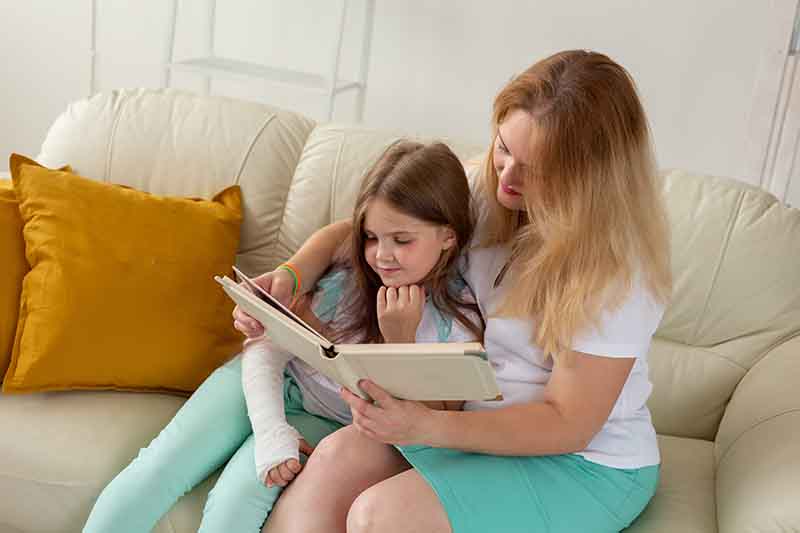It’s a new year, and time once again to celebrate all the parents and caregivers raising children and adolescents across our community. For the 11th year in a row, the County Board of Supervisors has partnered with First 5 Santa Cruz County to declare January 2023 as Positive Parenting Awareness Month, joining other California counties and the California legislature, which will pass a resolution declaring January 2023 as Positive Parenting Awareness Month across the state.
Raising children and youth to become healthy, confident, capable individuals is the most important and rewarding job parents and caregivers have, but sometimes it’s also the hardest job. That’s why proven strategies and support from programs such as the Triple P – Positive Parenting Program are here to help.
Even in the best of times, stress shows up in our lives. Sometimes, it comes from day-to-day events like a big test at school or a high-stakes situation at work. Other times, it comes from major life events like a family split apart by divorce or the death of a loved one. The ability to cope with strong feelings in response to these events—whether they are routine or major—is called emotional resilience.
This year, throughout Positive Parenting Awareness Month, we’re highlighting the building blocks of emotional resilience. As adults, we can help children and teens learn and practice emotional resilience skills so that they can cope with stressful life events and emerge stronger and happier. When children and teens (and adults) have the tools and support to use positive ways of coping with strong feelings, they’ll be less likely to turn to negative ways of coping, such as acting out, using alcohol or drugs, or harming themselves.
So how can we help children and teens build their emotional resilience muscles? We can start by teaching skills in these six building blocks:
Recognize, understand and accept feelings
Ups and downs are normal, so let kids know it’s OK to have different feelings. Talk about their experiences and feelings and help them learn to recognize emotions in themselves and in others. Don’t be afraid to share your own feelings, too.
Express feelings appropriately
When kids express their feelings and manage tough situations in safe, healthy ways, recognize this with your attention and observations (e.g., “I’m proud of you for telling your friend why you were upset.”). If they’re expressing their feelings in unsafe or inappropriate ways, such as yelling, swearing, or hurtful behaviors, recognize that too, with an emphasis on what they can learn from the outburst. Acknowledge that they’re upset first, tell them what to stop doing (“Please stop yelling”) and what to do instead (“Let’s take a deep breath”). As you do this, demonstrate the behavior you’re expecting — e.g., speak calmly when telling them to stop yelling.
Develop a positive outlook, including optimism, interest in things, and contentment
A positive, optimistic outlook can build your child’s confidence and contribute to emotional wellbeing; curiosity helps them learn. You can encourage both by pointing out the good side of events and experiences, being available and interested when your child wants to show you something, and asking your own questions about what they’re doing and creating. Being appreciative and grateful, and encouraging those feelings in your child, can build contentment.
Develop coping skills
Teach children and teens problem-solving skills by playing games, setting a good example, and breaking a bigger problem down into smaller pieces. Let them practice their problem-solving skills instead of solving everything for them. Positive self-talk—”I’ve got this!”—is a great life skill, and so is knowing how and when to ask for help.
Deal with strong feelings and unpleasant situations
We can’t completely protect children and teens from negative feelings and situations, but we can help them learn to manage their emotional responses. Stop and listen, acknowledge their feelings, and support them to find their own solutions. If needed, encourage them to take a break and return to the situation later in a calmer moment.
Manage stressful life events
When big feelings emerge in response to major events, let your child be upset and talk about why, reassure them, and try not to fix or solve everything in that moment. Encourage them to use their coping skills and check in on them, but be ready to seek more help if needed—and remember to take care of yourself, too!
Final Thoughts: We can learn to be more emotionally resilient at any age, but life is much smoother if we learn early!
Nicole Young is the mother of two children, ages 19 and 22, who also manages Santa Cruz County’s Triple P – Positive Parenting Program, the world’s leading positive parenting program. Scientifically proven, Triple P is made available locally by First 5 Santa Cruz County, the Santa Cruz County Health Services Agency (Mental Health Services Act) and the Santa Cruz County Human Services Department. To find a Triple P parenting class or practitioner, visit triplep.first5scc.org, www.facebook.com/triplepscc, or contact First 5 Santa Cruz County at 465-2217 or [email protected].







